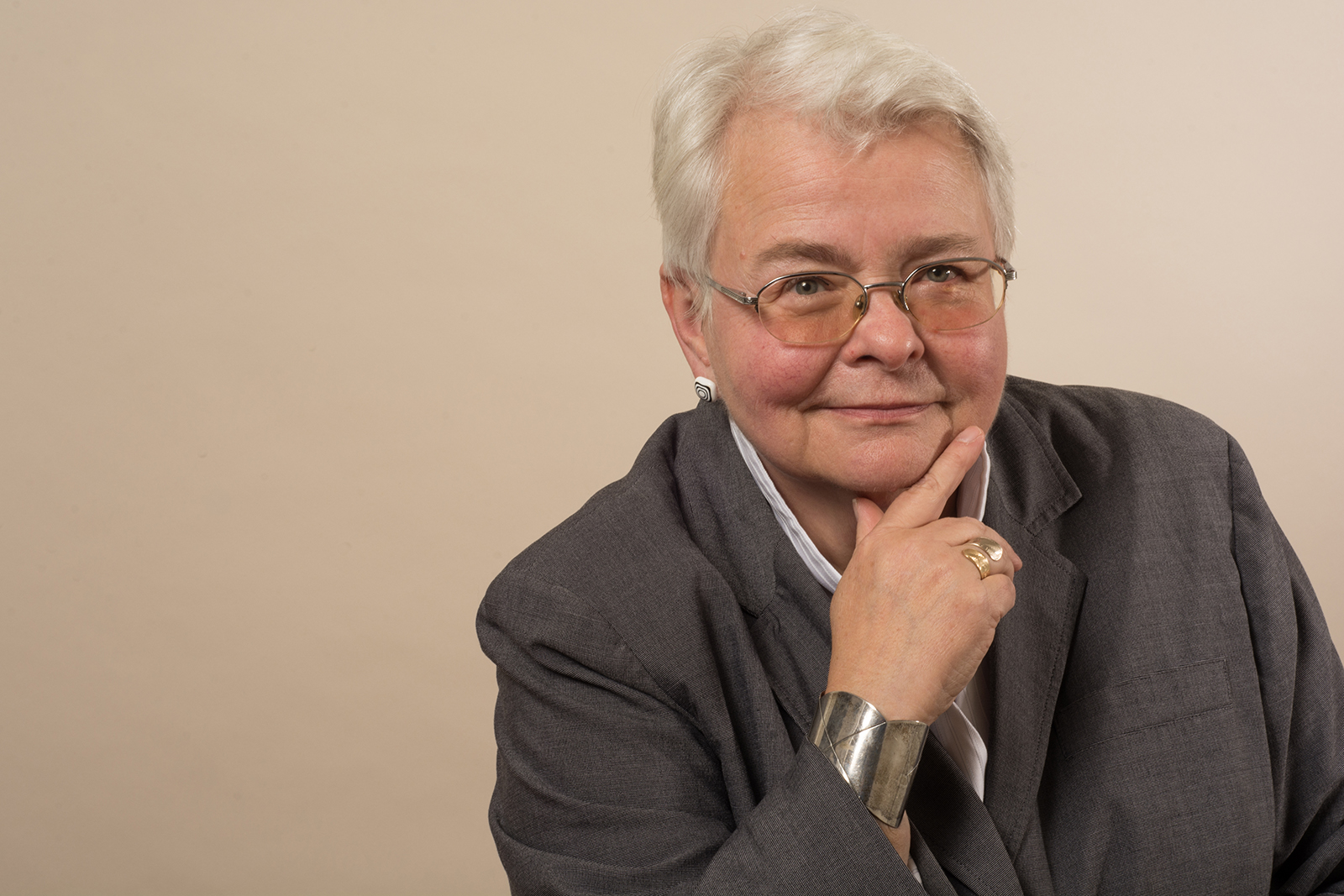Q&A: Playwright Paula Vogel discusses her play ‘Indecent’ and influential writers

UCLA’s playwright-in-residence Paula Vogel said her works continue to be influenced by the works of playwrights past. Her recent play, “Indecent,” is based off Sholem Asch’s “God of Vengeance.” The documentary screening of “The Rest I Make Up” that Vogel is hosting is inspired by playwright María Irene Fornés, whom Vogel describes as life-changing. (Courtesy of Laurie Sturdevant)
By Kennedy Hill
June 4, 2019 10:56 a.m.
The words of playwrights past continue to influence Pulitzer Prize winner Paula Vogel.
The 2018-2019 playwright-in-residence for the UCLA School of Theater, Film and Television received the award for her 1997 drama, “How I Learned to Drive.” Her latest work, “Indecent,” is based on the scandal that followed the Broadway debut of the Yiddish play “God of Vengeance,” and will premiere Wednesday at the Ahmanson Theatre. On Wednesday, Vogel will also host a screening of “The Rest I Make Up,” a documentary detailing the life of playwright María Irene Fornés.
Vogel spoke with the Daily Bruin’s Kennedy Hill about what inspires her writing, the importance of revisiting older playwrights’ work and Fornés’ influence on her writing.
Daily Bruin: What about “God of Vengeance” makes it stand out from other historical plays?
Paula Vogel: This play is very unique in the history of theater. It’s a little chapter in the history of American theater and censorship. It takes place in a Jewish man’s house located over the brothel where he is running a prostitution ring. He’s taking all of the money he makes from that to try and raise his daughter, but (she) falls in love with one of the prostitutes downstairs. In 1923 it became a success because it was scandalous; the play features the first kiss between two women on the American stage. The cast was arrested for obscenity and that caused the disappearance of the play.
[RELATED: Cellist Deborah Pae talks upcoming master class at UCLA, career influences]
Usually what I hear from those who read the play is, “Oh, my God, it’s so contemporary.” This play was written in 1906, but it feels like it was written last week. All of the issues that it talked about – the sexual exploitation of women, the abuse and violence against women – we are still in the midst of. We often aren’t paying attention when plays or books or literature suddenly dissipates, and there are many different forms of censorship in this country. I’ll be damned if this play is going to disappear. One of the things I said when I started the research and writing of it was I wanted my play, “Indecent,” to be product placement for Sholem Asch’s “God of Vengeance.”
DB: How did you tackle the challenge of writing about a play which you hold in such high regard?
PV: I wanted to be very careful about the excerpts from the play. I needed to do my own adaptation and translation of it. I spent about seven years of research – everything from the trial transcripts to Yiddish theater and history. You can’t actually put people who lived on stage; you can only make characters about a small aspect of those people. I wanted to be respectful, but not verberate.
DB: What do you think both “Indecent” and “God of Vengeance” say about the role of theater in a politically divisive climate?
PV: The history of the production poses the question: How often do we stop ourselves from writing the truth because it casts a bad view of the people in our community? I see Sholem Asch as a young man who (would have) said Jewish people are no different than Catholics or Buddhists or any other people. We’re human. I really admire a young man who stood against the pressure and did not put the play away in a drawer. For me, “Indecent” is a valentine to theater, to actors and the stage managers – wanting to describe that experience of falling in love with theater and how it changes your life.
[RELATED: New cinematographer-in-residence talks filming process of ‘Star Wars’ and more]
DB: Could you tell me about María Irene Fornés and the documentary screening you are hosting about her legacy?
PV: I fell in love with her plays, and she changed my thinking that I could do this strange thing called playwriting. It’s an extraordinary documentary about perhaps the greatest woman in the 20th and early 21st century in American theater. I think Irene Fornés is life-changing.
DB: What do you hope student playwrights can learn from both “Indecent” and “The Rest I Make Up?”
PV: What do you want someone to take away when you’ve cooked the most delicious dish that you know how to cook? That your mother cooked for you, and your grandmother cooked for you, and it’s a family recipe that you can say, “I welcome you into my house.” How do you describe the love that goes into the making? I don’t know if I could put it into words. I am simply in the kitchen, putting in all of the things I love, answering all of the artists who have given me their secret recipes. I’m very honored to serve it up at the Ahmanson Theatre with this extraordinary group of artists. Beyond that, everyone is going to have to taste it for themselves.

